Shoulder Acne: How To Get Rid, Treat, And Prevent Breakouts
Get rid of those pesky and painful spots with home remedies, topical treatments, and more.
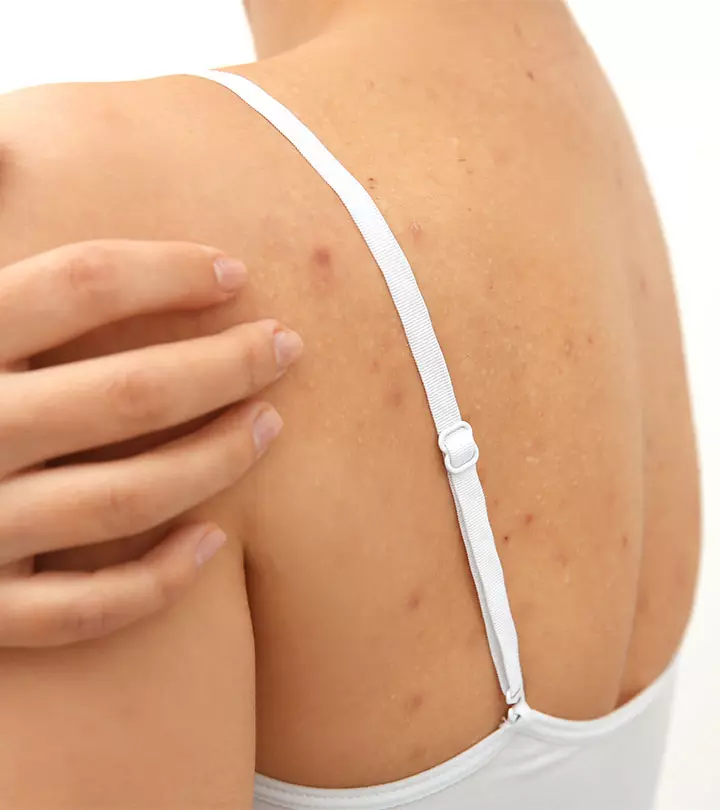
Image: Shutterstock
Acne is a common skin condition that happens due to clogging of the pores of our skin, alongside a variety of medical reasons such as hormonal imbalances or diet. The pores of our skin containing hair follicles are connected to the sebaceous (sebum/oil-producing) glands underneath. These glands, when triggered by certain hormones, tend to produce excess oils clogging the pores thereby. This leads to acne and pimples (1).

Shoulders being often exposed to dust, pollution, and sweat often result in shoulder acne. Also, the pores being larger, tend to get clogged sooner with sweat, oil, and build-up. Here, in this article, we shall have a look at the types and causes of shoulder acne along with the effective ways to get rid of the same.
In This Article
Types Of Acne On The Shoulders
Acne is most commonly found on the face but can happen anywhere on the body, including the pimples on back (back acne) and shoulders. Usually, the acne found on the shoulders is one of the two types— acne vulgaris and acne mechanica. These are generally classified and identified as per the cause.
- Acne vulgaris
Acne vulgaris is the most common type of acne that we come across. It is usually caused by clogging of pores with oil and debris build-up. It is usually aggravated by a hormonal imbalance or at times, by the bacteria cutibacterium acnes (2).
- Acne mechanica
Acne mechanica usually develops due to physical factors such as tight clothing, heat, and friction (3). Regularly wearing tight bra straps or even a heavy backpack can result in this acne on your shoulders. Tight gym clothes harboring sweat is another common culprit.
In either of these cases, there are a few symptoms and appearances that are common to both.
- Blackheads
Blackheads, also known as open comedones, show up when a clogged follicle opens up (4). The black-point appearance of blackheads is due to a reaction that happens between sebum and air, and not because of dirt in the follicle. These usually look like minute black spots that are hard below the skin.
- Whiteheads
Also known as closed comedones, whiteheads are clogged pores as well, that remain closed and covered by a thin layer of skin, forming a white bump.
- Papules
Papules are acne lesions on the skin that appear as pink bumps on the skin and are often tender to touch. These usually get formed when a hair follicle gets inflamed.
- Pustules
Pustules, also known as pimples, are raised areas of skin with pus inside. It’s usually white or yellow with a reddened base and a buildup of white blood cells resulting in pus. These are also often caused due to the accumulation of dirt, oil, and impurities. It can also be caused by hormonal irregularities, genetics, unhealthy lifestyle habits, and certain skin care practices or products.
- Nodules
Many pustules sometimes combine to form a nodule. Nodules and cysts are usually formed when bacteria also gets trapped in a hair follicle. These lesions form deep underneath the skin and are usually hard and painful.
- Cystic Acne
These are large breakouts that form underneath the skin and appear red, swollen, and painful to touch as well.
- Nodulocystic Acne
Nodulocystic acne is a severe form of acne characterized by large, painful nodules and cysts deep under the skin that may lead to significant scarring. Treatment for nodulocystic acne may include antibiotics (5).
- Excoriated Acne
Excoriated acne is less about the acne itself and more about the compulsive picking and scratching of the skin, often triggered by stress or psychological factors. This can exacerbate the skin’s condition and lead to scarring. Addressing the underlying psychological component is critical (6).
- Tropical Acne
Tropical acne occurs in hot, humid climates, causing large, inflamed lesions across the shoulders and back. The key to managing tropical acne includes maintaining good hygiene, using appropriate topical treatments, and in some cases, oral antibiotics to combat infection.
In a US survey by Wakefield Research, it was found that age has a significant impact on the occurrence of truncal acne (acne on the back, check, or shoulders). Among 2,000 respondents, 49% of the 14–20 year age group had reported truncal acne, while the occurrence was 54% in the 21–29 year age group.
Now that you know how to identify the different types of shoulder acne, let’s have a look at the ways you can get rid of acne on your shoulders.
Key Takeaways
- Acne vulgaris and acne mechanica are two types of shoulder acne that develop due to factors such as hormonal changes, sweat, or bacteria.
- Cleansing and exfoliating your skin along with using tea tree oil or honey are a few ways to get rid of shoulder acne effectively.
- Eating a balanced diet and wearing clean clothes allows your skin to breathe and reduces the frequency of shoulder acne.
How To Get Rid Of Acne On Shoulders
- Home Remedies
- Cleanse
To avoid clogged pores, it’s important to cleanse your skin regularly. Warm water and the gentle scrub of a mild cleanser with a loofah help wash out the sweat and build-up from the body.
- Exfoliate
Along with the daily cleansing, a weekly ritual of exfoliation would help get rid of the dead cells and build-up in the skin. Regular exfoliation not only cleanses out the pores but also makes the skin soft and smooth (7).
- Warm Compress
Applying a warm compress on or around the shoulder acne helps improve blood circulation thereby accelerating the healing process. This should however be avoided if the acne is red, swollen, and tender to touch.
- Cold Compress
A dab of cold compress helps reduce the pain and inflammation and soothe the acne, offering some amount of relief thereof.
- Moisturize
Keeping the skin moisturized with non-comedogenic natural oils or moisturizers helps heal the acne faster (8).
 Pro Tip
Pro Tip- Honey
Honey has antibacterial and anti-inflammatory properties that help reduce the soreness of acne and diminish the acne scars as well if any (9).
- Tea Tree Oil
Tea tree is a common acne treatment that is found to be effective given its natural antibacterial and anti-inflammatory properties (10). It is usually found as an essential oil but it should not be used directly just on its own. It should be diluted with water before use as it might cause potential reactions just on its own. Also, face washes and skincare products with tea-tree oil as the main ingredient can help calm the acne gradually. Do a patch test beforehand to make sure that it does not irritate your skin.
 Did You Know?
Did You Know?- Topical Treatments
Topical treatments are also effective in curing shoulder acne (11). Below are a few of them.
- Benzoyl Peroxide
A well-known ingredient for most over-the-counter medicines, benzoyl peroxide is found to be most effective on pus-filled pimples on shoulders. It works by killing the bacteria that causes acne and preventing further infection of the same. It is usually more drying than salicylic acid and you should always do a patch test before using it for the first time. Though it is usually found in various acne-treating creams and washes, it is always better to start with a low concentration (12). Also, if you have sensitive skin, you might find any other shoulder acne treatments more suitable.
- Salicylic Acid
Salicylic acid penetrates and cleanses the pores from within. It gently exfoliates the skin and prevents further buildup and clogging of pores. Salicylic acid has been found effective for mild and moderate acne, especially in getting rid of blackheads and whiteheads (13) (14).
Note: Be sure to apply sunscreen daily if you use salicylic acid products as they make your skin more prone to sun damage.
- Retinoids
Retinoids are chemical compounds derived from vitamin A that increase skin cell turnover by keeping dead cells, oil, and bacteria out of pores. It is usually not a spot treatment and needs to be used regularly before seeing any visible results (15).
- Azelaic Acid
Naturally found in grains, such as wheat, barley, and rye, azelaic acid, when applied topically, helps decrease the redness and swelling of acne on the skin (16).
- Oral Medications
- Antibiotics
When the shoulder acne is red, swollen, and tender to touch, it is mostly infected with bacteria. In such cases, the health practitioner might prescribe a course of antibiotics to control and heal the acne effectively.
- Contraceptives
Certain oral contraceptives have been found effective in controlling acne (17). These should always be taken after proper investigation and only when prescribed by the doctor as they affect your hormones.
- Hormone Therapy
Sometimes, if the cause is found to be hormonal, the doctor might recommend hormonal therapy. This usually involves certain medications to reduce the particular hormone level and get it back in balance (18).
John, a YouTuber, shares about shoulder spots and acne. He records his journey with Adapalene and says, “I’m very impressed. It seems to be less inflamed and less intense (i).”
While it helps to know how to treat your acne, knowing the cause would make it easier to decide what treatment works best.
What Causes Shoulder Acne
- Hormones: Just like acne anywhere on the body, acne on the shoulders is often caused by hormonal imbalances (19). Hence, these are commonly found during puberty, menstruation cycle, or pregnancy for women.
- Sweat: Tight-fitting clothes or anything that adds friction to your body and shoulders like a heavy backpack, can lead to an eruption of acne. Lack of personal hygiene, like sitting in sweaty gym clothes for long, after a workout session, might result in frequent episodes of acne on the shoulders (20).
- Bacteria: Cutibacterium acnes is the bacteria that is often known to cause shoulder acne (21).
- Medicines: Some medicines, especially those containing corticosteroids, androgens, and lithium could potentially react to give you acne (22).
- Genetics: Acne is also found to run in families. If any of your parents had prominent episodes of acne, you are likely to get it at some point in life as well (23).
- Diet: A diet high in glycemic index is usually known to cause acne (24).
Being aware of the causes above, you can take relative preventive measures to help reduce the frequency and severity of your shoulder acne.
Prevention Tips
- Cleanse
Keeping your body clean and well moisturized may help reduce the frequency and severity of acne. Even though shoulder acne might be hard to reach and take care of, a cleansing body wash or a warm bath can help accelerate the healing process.
- Exfoliate
While you might be cleansing your face and body every day, it is also important to exfoliate the skin at least once a week. A gentle scrub helps remove dead cells and oil build-up, cleaning out the pores and making the skin smooth and even. Be careful not to overdo it though, especially if you already have some tender acne on your shoulders.
- Maintain Personal Hygiene
To keep any sort of acne at bay, personal hygiene plays an important role. It can be as simple as a timely change of clothes and linen or regular trimming of hair and nails. It ultimately adds up to work in your favor and against the frequent occurrence of acne on your shoulders or anywhere on the body for that matter.
- Eat A Balanced Diet
What you eat tends to show up on your skin. Eating a well-balanced, nutritious diet helps maintain the internal balance of hormones and nutrients, ultimately helping to keep the acne away.
- Manage Stress
Stress in your daily life affects your mind and body as well. Stress has been known to aggravate episodes of acne and other skin conditions. It thus helps to keep your mind and body as relaxed and stress-free as possible (25).
- Wear Clean Clothing
Acne on shoulders tends to flare up if the skin isn’t able to breathe properly. It is always better to wear clean and organic clothing made up of natural fabrics like cotton and linen instead of any synthetic materials.
Most episodes of acne are known to resolve on their own. Maintaining personal hygiene and keeping your skin clean and clear helps to manage your acne well. But in certain cases, you may need to get a professional opinion.
When To See A Doctor
When the acne seems persistent or reappears frequently, it is better to get it checked by a dermatologist. You might be prescribed topical ointments or oral antibiotics to heal your shoulder acne effectively (26).
In response to over-the-counter medicine, if you suspect allergic reactions like breathlessness, skin inflammation, or swelling of eyes, lips, tongue, or face, then you should seek immediate medical help (27). Also, if you have any prior health issues, it is always advisable to consult your doctor before starting any medication for the first time.
Exposure to dust, hormones, stress, or genetics can cause clogged pores and lead to shoulder acne. The two types of acne commonly found on the shoulder are acne vulgaris and acne mechanica. To effectively reduce acne, you must follow a proper skin care regimen and apply a warm or cold compress to help heal your acne faster. In addition, you can opt for over-the-counter topical creams or prescribed medications for treating acne. However, eating a well-balanced diet, maintaining personal hygiene, and managing your stress can prevent shoulder acne in the first place. You should consult a dermatologist for a thorough diagnosis and the best treatment options.
Frequently Asked Questions
Can sweat and exercise contribute to shoulder acne?
Yes. When you sweat after intense exercise, it may trap dirt and oil in your skin pores, eventually clogging them. This creates a breeding ground for bacteria to thrive, leading to shoulder acne.
Does sun exposure help or worsen shoulder acne?
Sun exposure can worsen shoulder acne. UV rays can further damage the skin and increase inflammation, which may exacerbate existing acne on the shoulder.
Watch the following video to learn effective strategies for tackling chest and back acne. It also shares some practical tips and skincare routines to clear and prevent these troublesome breakouts on your body to enhance your confidence.
Personal Experience: Source
StyleCraze's articles are interwoven with authentic personal narratives that provide depth and resonance to our content. Below are the sources of the personal accounts referenced in this article.
(i) Tips for to get rid of Shoulder Spots/Acne, My Experience with Differin (Adapalene)https://www.youtube.com/watch?v=FvfEzDNVX8Y
References
Articles on StyleCraze are backed by verified information from peer-reviewed and academic research papers, reputed organizations, research institutions, and medical associations to ensure accuracy and relevance. Read our editorial policy to learn more.
- Acne: Overview
https://www.aad.org/public/diseases/acne/really-acne/overview - Acne vulgaris
https://www.ncbi.nlm.nih.gov/books/NBK459173/ - Acne mechanica
https://www.ncbi.nlm.nih.gov/books/NBK459173/ - Comedone formation: Etiology, Clinical presentation, And Treatment
https://pubmed.ncbi.nlm.nih.gov/15556720/ - Isotretinoin And Tetracycline In The Management Of Severe Nodulocystic Acne
https://onlinelibrary.wiley.com/doi/abs/10.1111/j.1365-4362.1985.tb05775.x - Acne Excoriée: Diagnostic Overview And Management
https://onlinelibrary.wiley.com/doi/abs/10.1111/ijd.16964 - How To Safely Exfoliate At Home
https://www.aad.org/public/everyday-care/skin-care-secrets/routine/safely-exfoliate-at-home - Moisturizer: Why You May Need It If You Have Acne
https://www.aad.org/public/diseases/acne/skin-care/moisturizer - Antibacterial Activity Of Manuka Honey And Its Components: An overview
https://www.ncbi.nlm.nih.gov/labs/pmc/articles/PMC6613335/ - 8.Treatment Of Acne With Tea Tree Oil (Melaleuca) Products: A Review Of Efficacy, Tolerability And Potential Modes Of Action
https://pubmed.ncbi.nlm.nih.gov/25465857/ - 9.Topical Treatment Of Acne vulgaris: Efficiency, Side Effects, And Adherence Rate
https://pubmed.ncbi.nlm.nih.gov/31122106/ - 10.Comparing 2.5%, 5%, And 10% Benzoyl Peroxide On Inflammatory Acne vulgaris
https://pubmed.ncbi.nlm.nih.gov/2948929/ - Management Of Acne
https://www.ncbi.nlm.nih.gov/pmc/articles/PMC3080563/ - Acne- Diagnosis
https://www.nhs.uk/conditions/acne/diagnosis/ - Topical Retinoids In Acne Vulgaris: A Systematic Review
https://pubmed.ncbi.nlm.nih.gov/31122106/ - Azelaic Acid. A Review Of Its Pharmacological Properties And Therapeutic Efficacy In Acne And Hyperpigmentary Skin Disorders
https://pubmed.ncbi.nlm.nih.gov/1712709/ - Use Of Oral Contraceptives For Management Of Acne vulgaris And Hirsutism In Women Of Reproductive And Late Reproductive Age
https://www.ncbi.nlm.nih.gov/labs/pmc/articles/PMC5925193/ - Stubborn Acne? Hormonal Therapy May Help
https://www.aad.org/public/diseases/acne/derm-treat/hormonal-therapy - Adult Acne
https://www.aad.org/public/diseases/acne/really-acne/adult-acne - Is Sports Equipment Causing Your Acne?
https://www.aad.org/public/diseases/acne/causes/sports-equipment - Clinical And Biological Features Of Cutibacterium (Formerly Propionibacterium) avidum, an Underrecognized Microorganism
https://www.ncbi.nlm.nih.gov/labs/pmc/articles/PMC6056840/ - Drug-induced Acne
https://pubmed.ncbi.nlm.nih.gov/28274352/ - Gene Variants Associated With Acne vulgaris Presentation And Severity: A Systematic Review And Meta-analysis
https://www.ncbi.nlm.nih.gov/labs/pmc/articles/PMC8045239/ - Effects Of Diet On Acne And Its Response To Treatment
https://www.ncbi.nlm.nih.gov/pmc/articles/PMC7847434/ - Acne And Stress: Impact of Catecholamines On Cutibacterium acnes
https://www.ncbi.nlm.nih.gov/labs/pmc/articles/PMC6635461/ - Diagnosis And Treatment Of Acne
https://www.aafp.org/pubs/afp/issues/2004/0501/p2123.html - Acne Products: How To Avoid Allergic Reaction
https://www.aad.org/public/diseases/acne
Read full bio of Dr. Schwarzburg
Read full bio of Eshna Das
Read full bio of Ramona Sinha
Read full bio of Swathi E






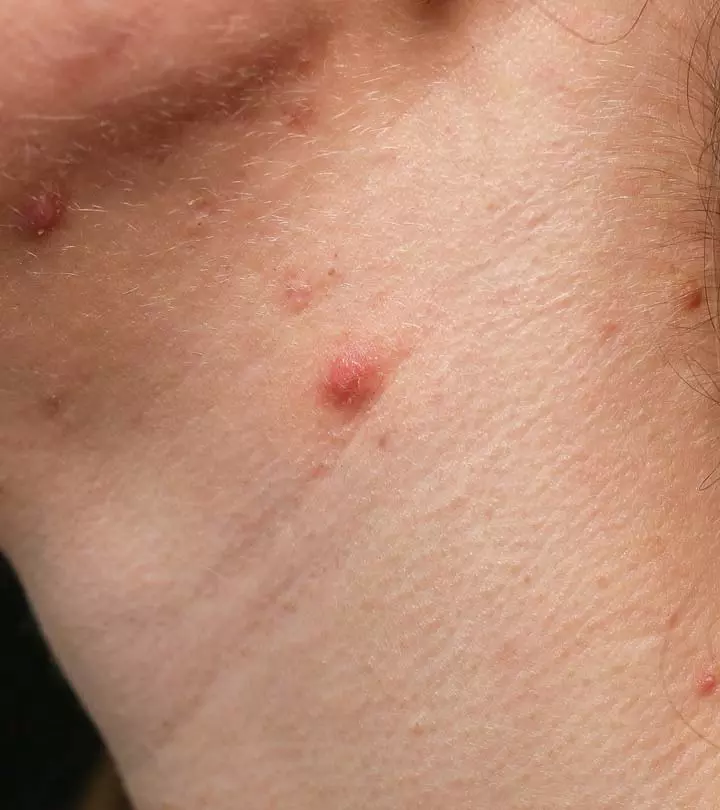
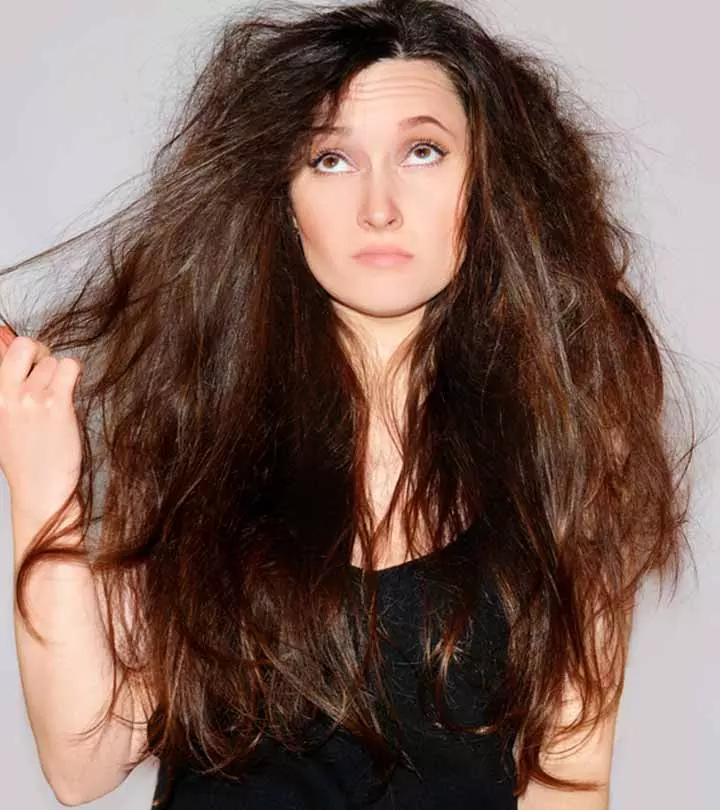
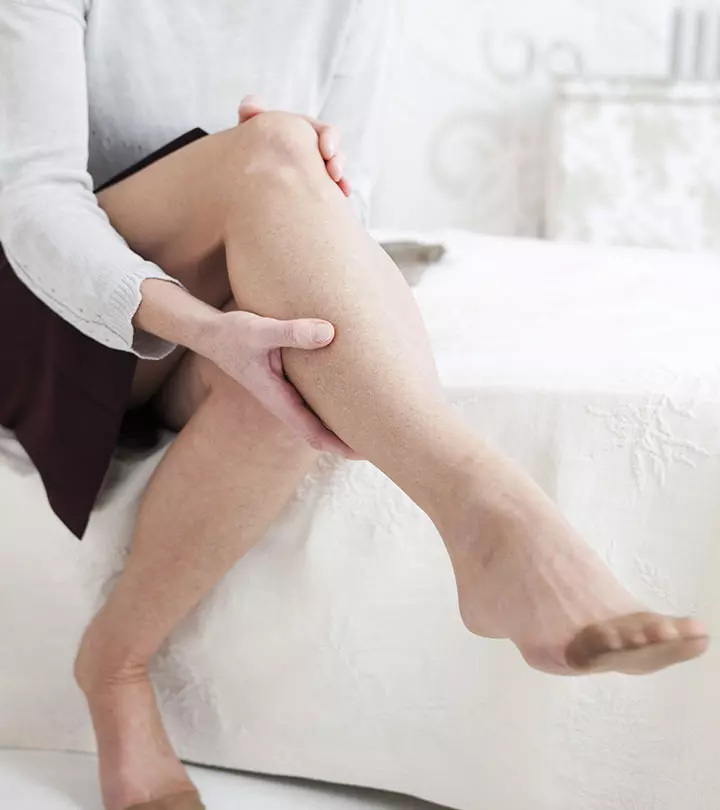
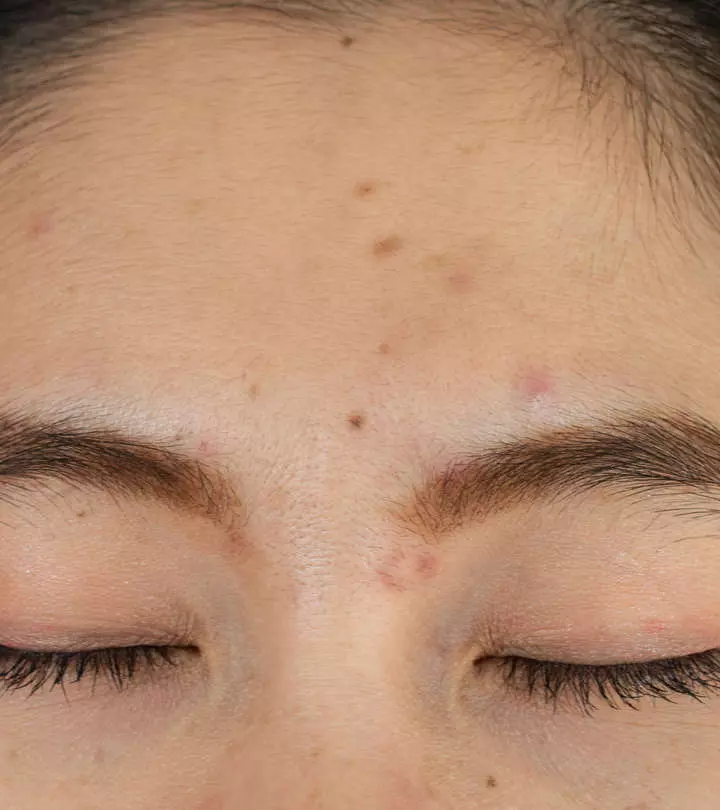
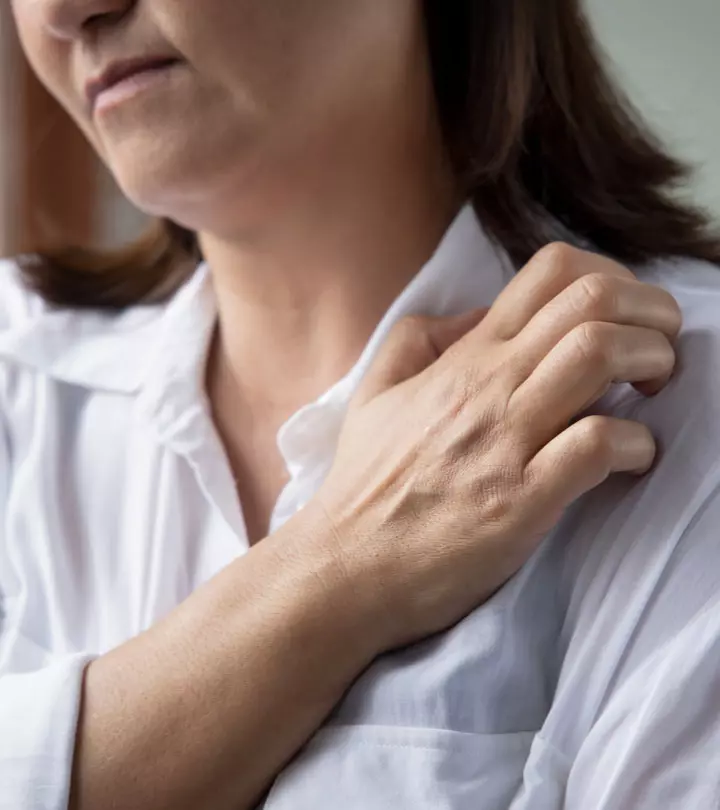
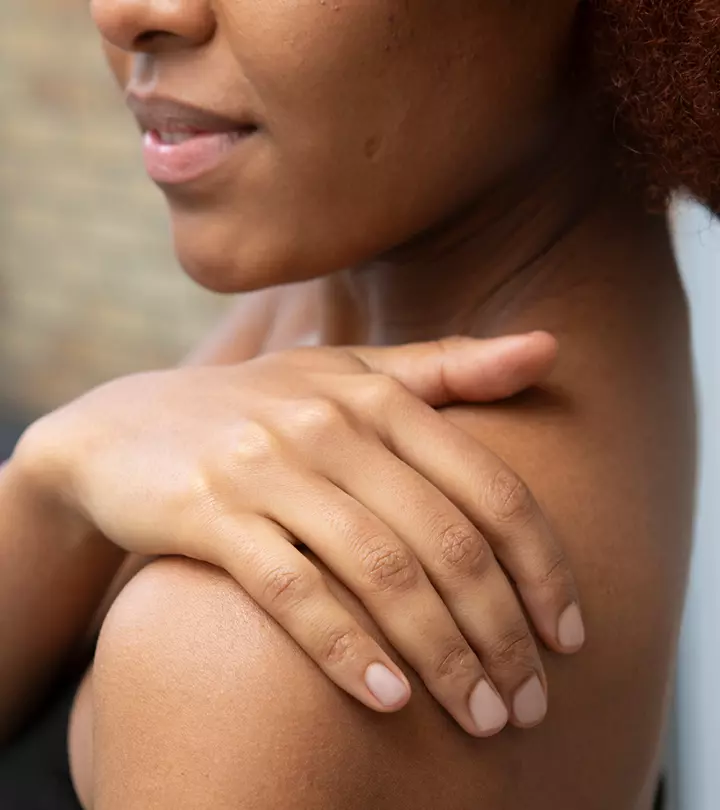
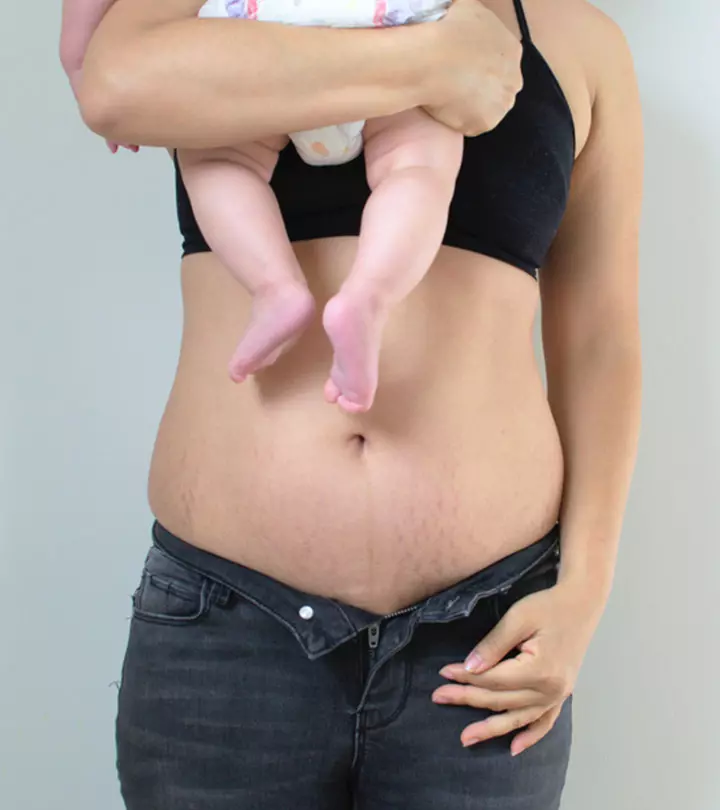
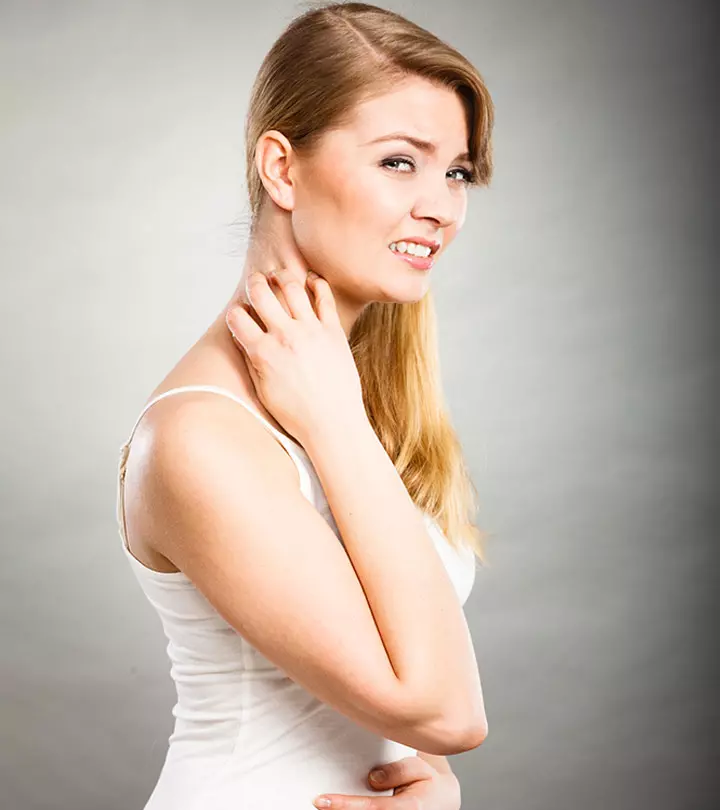
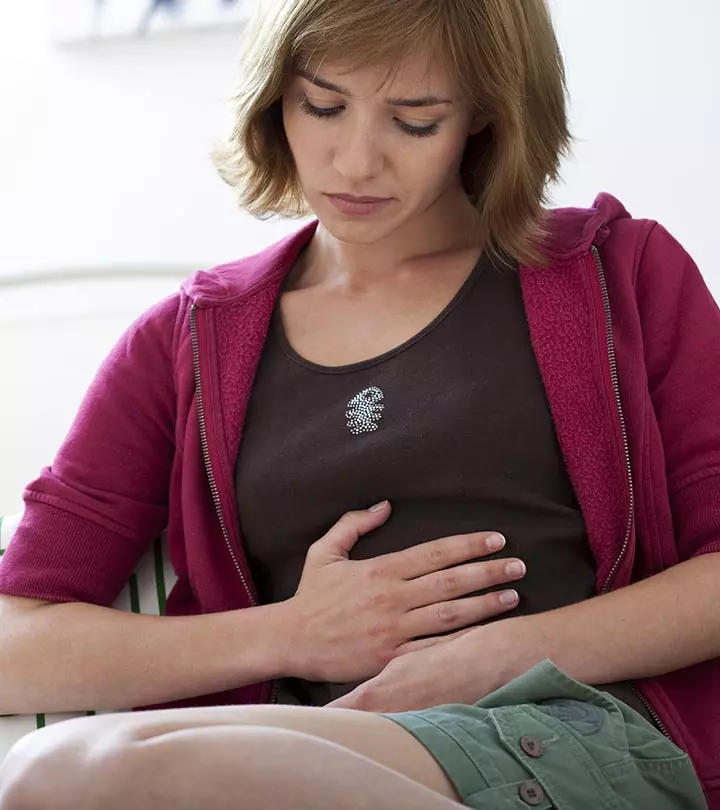
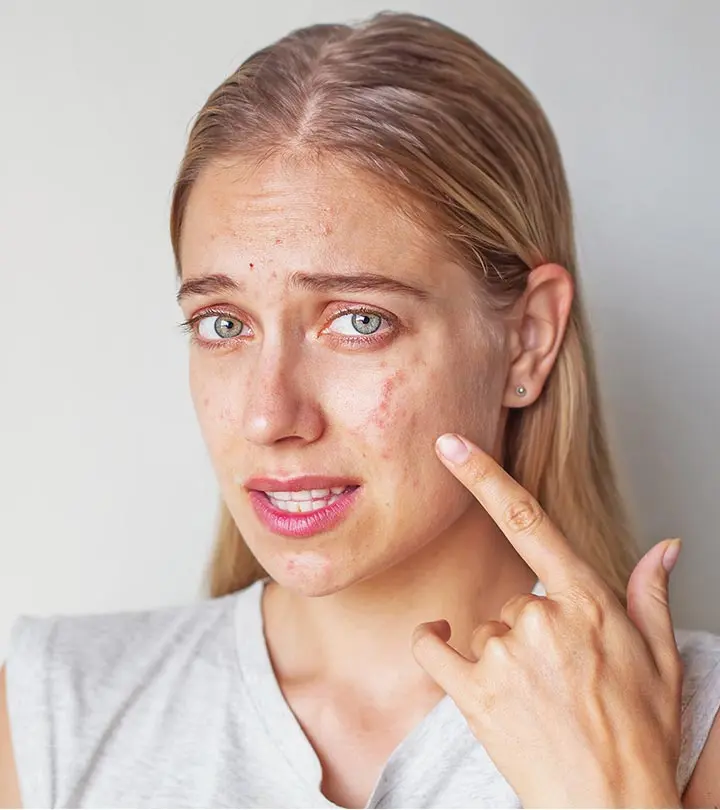
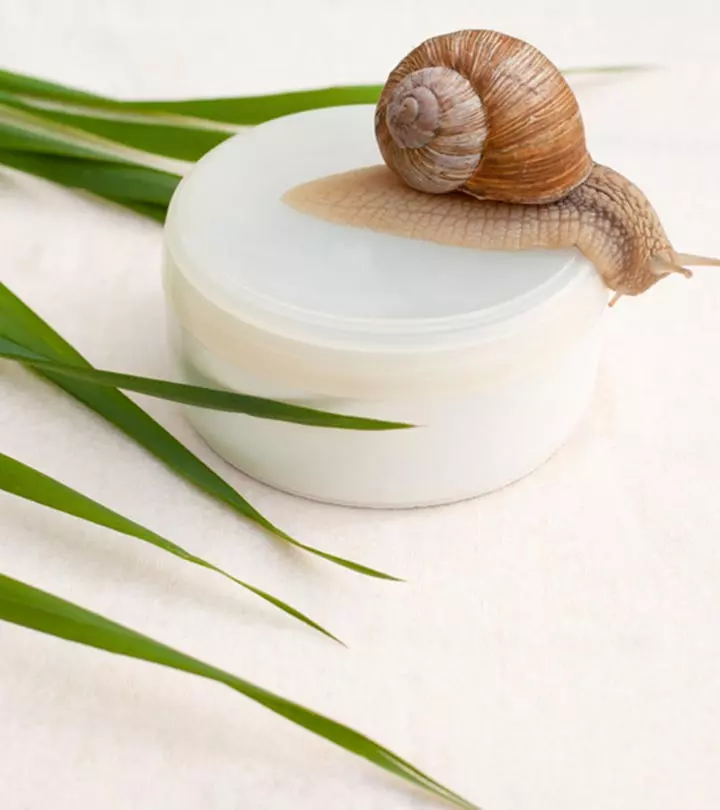
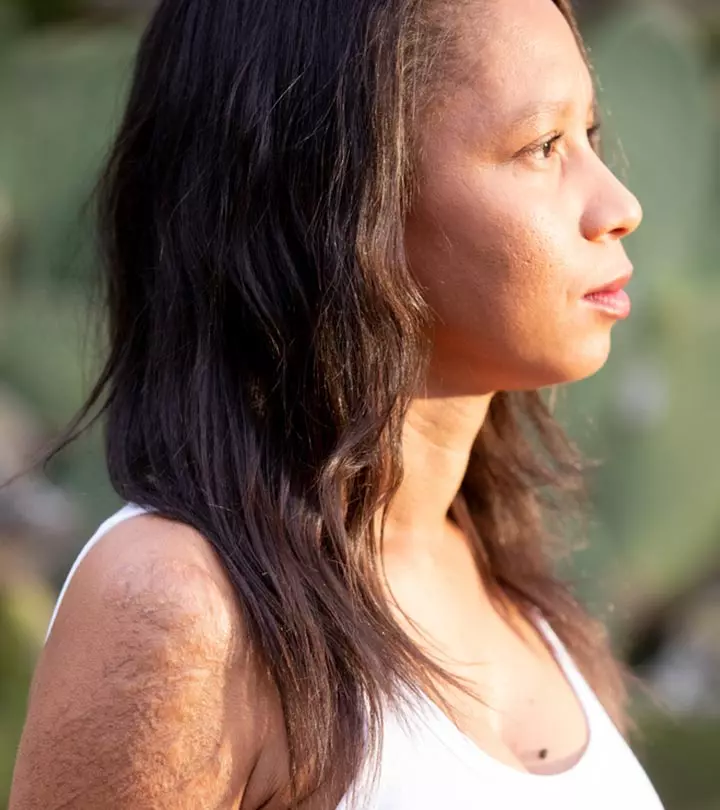
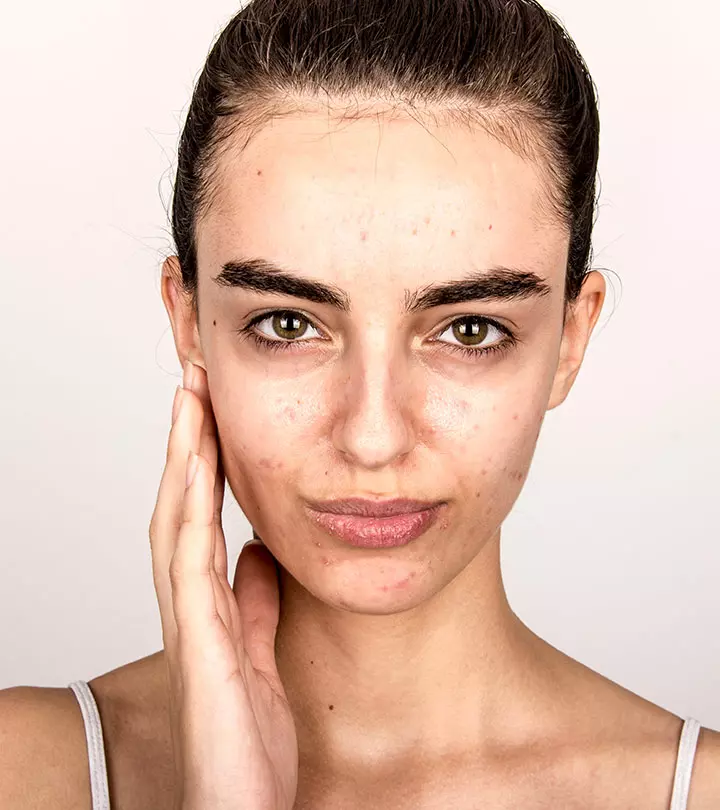
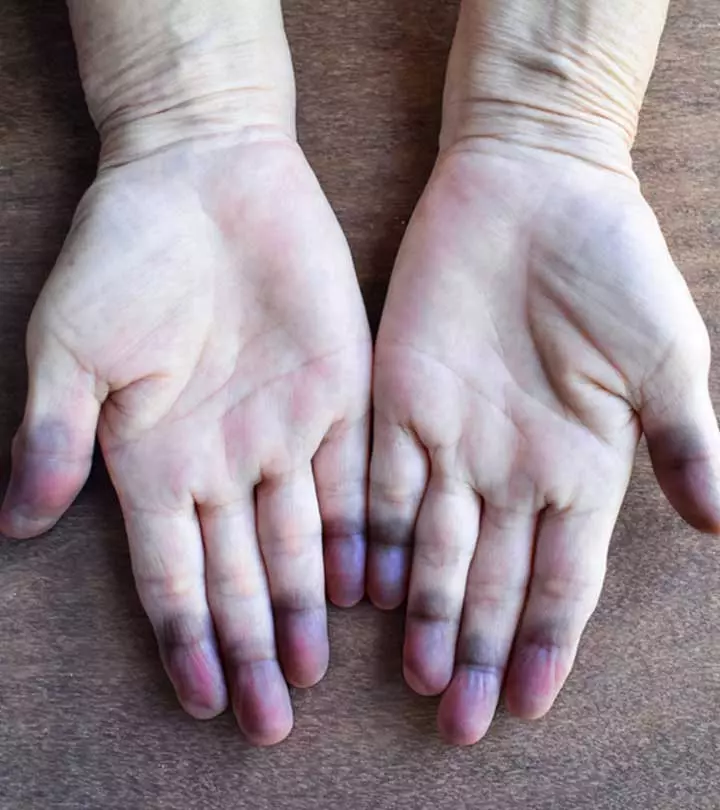
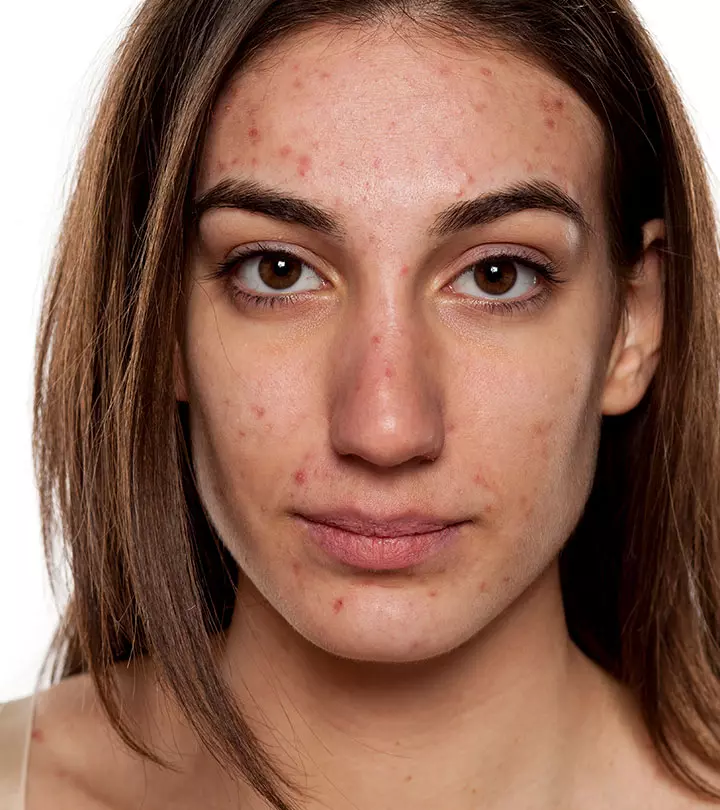
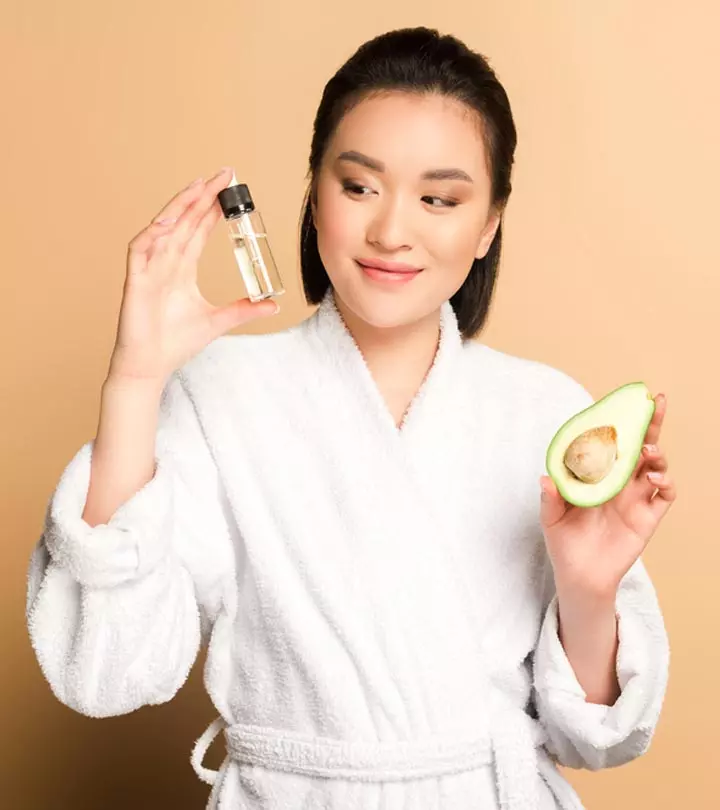
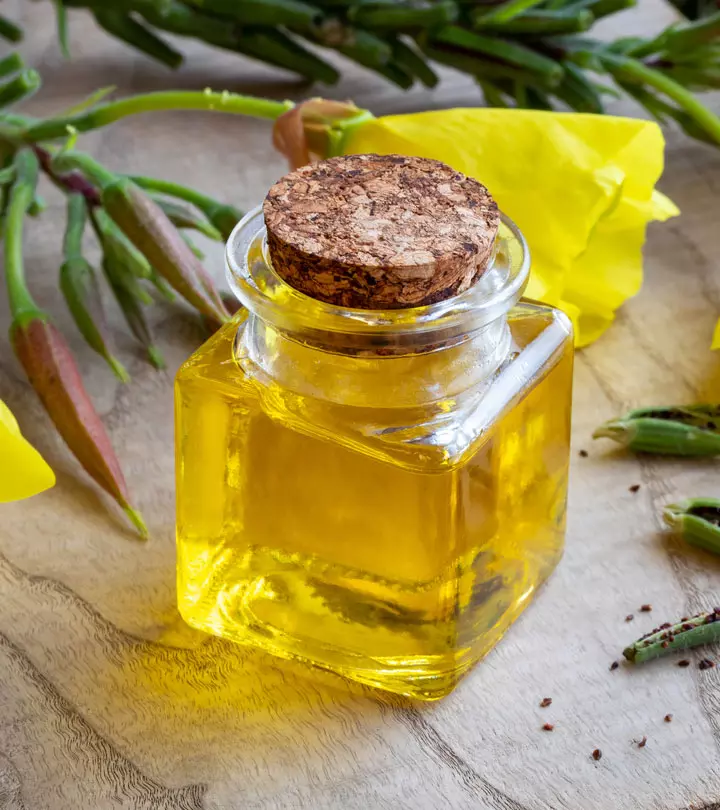
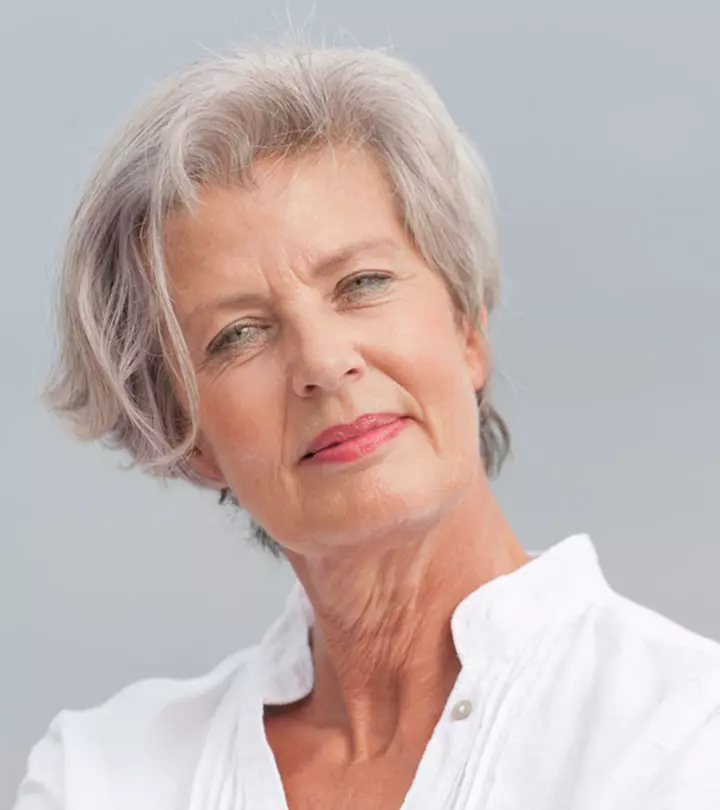
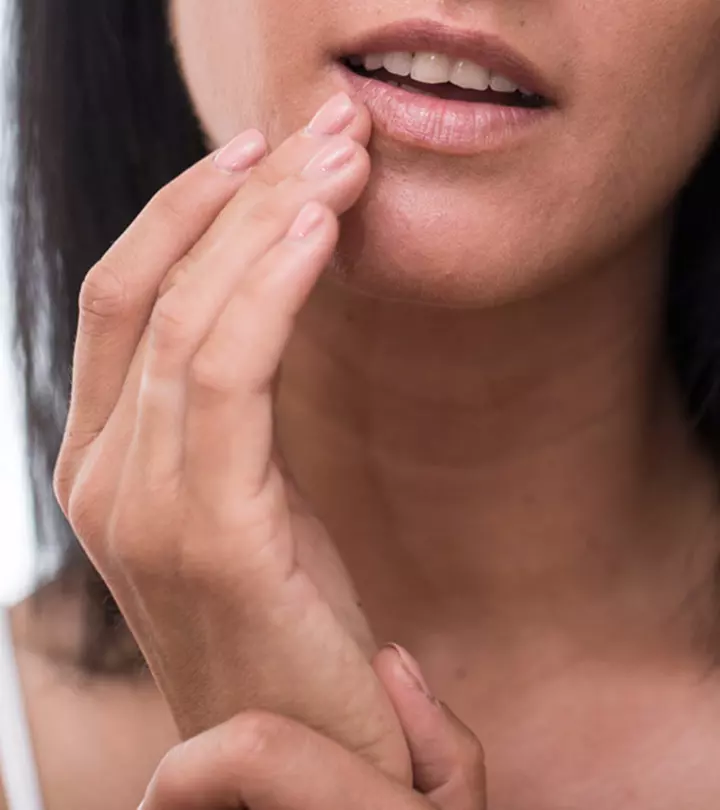
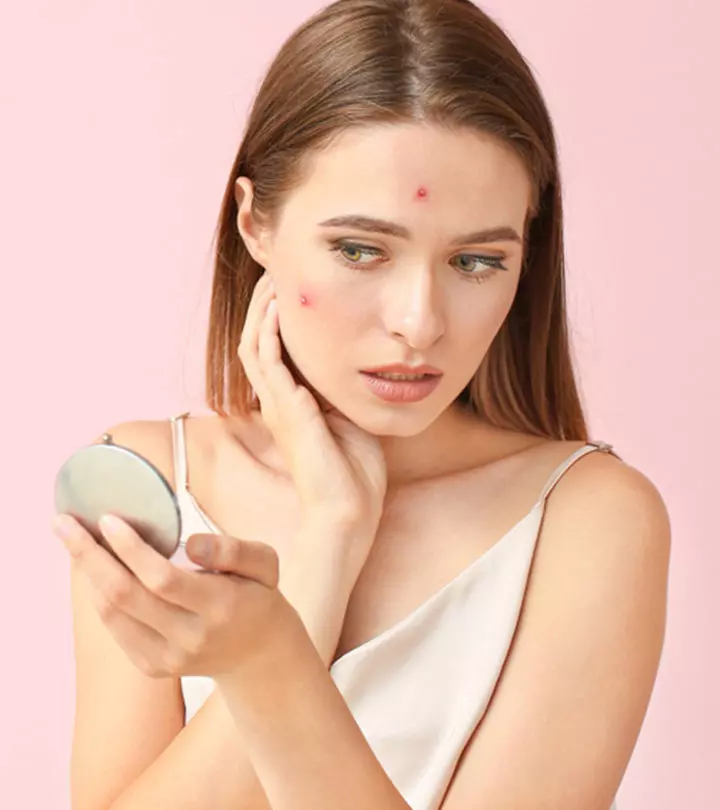
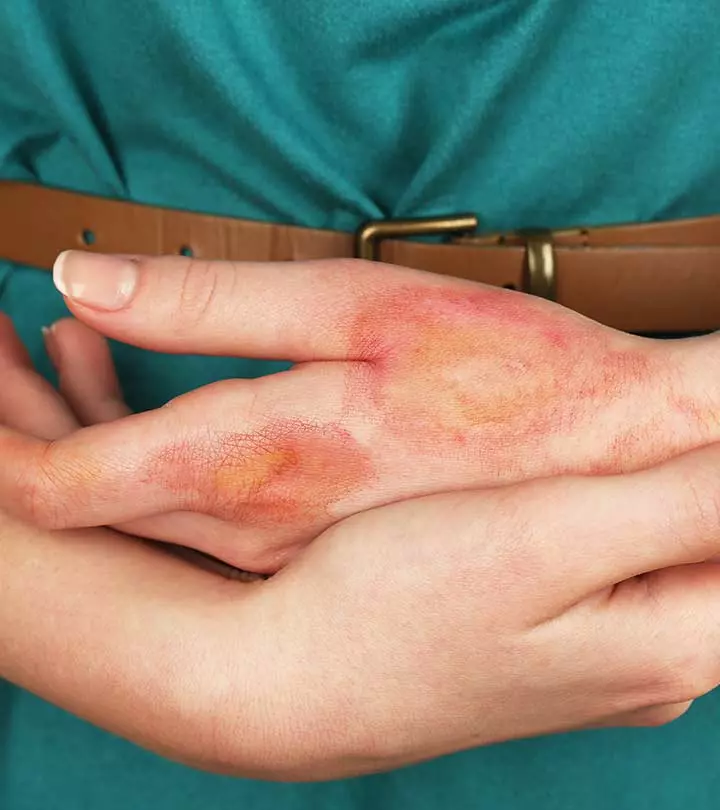
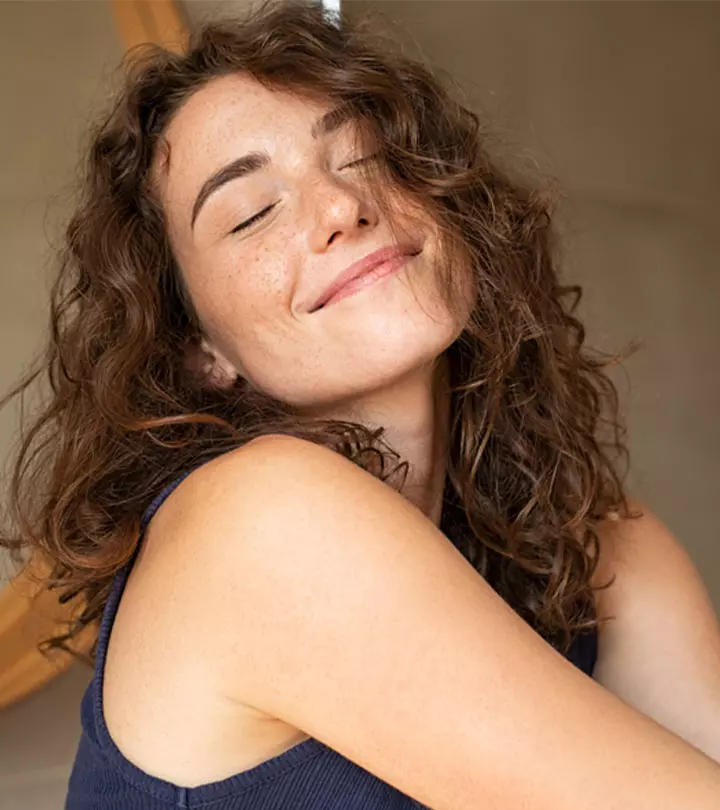
Community Experiences
Join the conversation and become a part of our empowering community! Share your stories, experiences, and insights to connect with other beauty, lifestyle, and health enthusiasts.